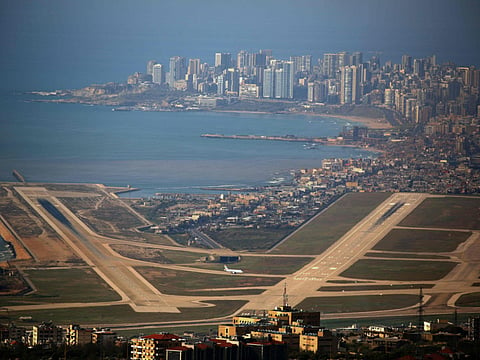Lebanese presidential impasse enters third year
Longest presidential interregnum in recent history reflects fundamental differences between the March 8 and March 14 alliances

Beirut: The highly-rated MTV television station began its prime news bulletin on Tuesday night with a declaration that Lebanon entered the Guinness World Records with its two-year presidential vacuum. It was a metaphor meant to accompany the station’s public utility spots, which allow citizens to openly and courageously vent against the political establishment, though the overall tone was inescapable.
On Wednesday, Lebanon entered the third year of a full-fledged vacancy at the top spot in the country’s political system, in what were clear violations of both the National Pact as well as a defilement of the Ta’if Accords. Few foresaw any changes despite oft-repeated pledges from various sources to elect a president in the shortest possible time frame.
This is the longest presidential interregnum in contemporary Lebanese history, which reflects fundamental differences between the March 8 and March 14 alliances, engaged in a rare battle of wills over the very identity of the next head of state. Inasmuch as a slew of other concerns pit the two groups against each other, ranging from a new electoral law for parliamentary elections to Hezbollah’s deployments in Syria, political elites continued to squabble over the prolonged vacuum in the country’s top Christian post.
By universal acknowledgement and in addition to Syria and Iran, France, Saudi Arabia and the United States — among a long list of countries that intended to influence the process — were involved in back-channel negotiations to break the presidential deadlock, each falling back on and manipulating indigenous acolytes to nudge the process back and forth.
The most recent concoction involved an initiative advanced by Speaker Nabih Berri to first hold early parliamentary elections before calling for a presidential vote. The proposal found few supporters because the Lebanese, including those that represented the political establishment, don’t trust each other.
Under the circumstances, it was difficult to fathom a specific time when a successor to President Michel Sulaiman would be chosen, aware that he too was elected after an 18-month-long void, and only in the aftermath of the 2008 Doha Accords that witnessed significant financial disbursements to the 128 parliamentarians involved and their acolytes.
Sulaiman ended his six-year term of office on May 24, 2014, unwilling to tolerate any tinkering of the constitution as was the case with his predecessor, something that many Lebanese, including those entrusted with its preservation, seemed willing to engage in. Without a president by May 2017, which is probable, Lebanon is likely to confront a major crisis as Parliament — which extended its own mandate twice already in 2013 and 2014 — is obliged to hold new elections before the end of its current term in June 2017.
Ironically, the two leading presidential candidates are both Hezbollah allies, the Free Patriotic Movement’s Michel Aoun and the Marada’s Sulaiman Franjieh, even if the latter was nominated by none other than former Prime Minister Saad Hariri, a March 14 pillar. Walid Junblatt and the Progressive Socialist party backed a third contender, Henri Helou, who was an insurance candidate to prevent either Aoun or Franjieh from winning.
The 40th parliamentary convocation on May 10 failed to assemble a quorum, prompting the Speaker to set a new session for June 2.
Sign up for the Daily Briefing
Get the latest news and updates straight to your inbox



